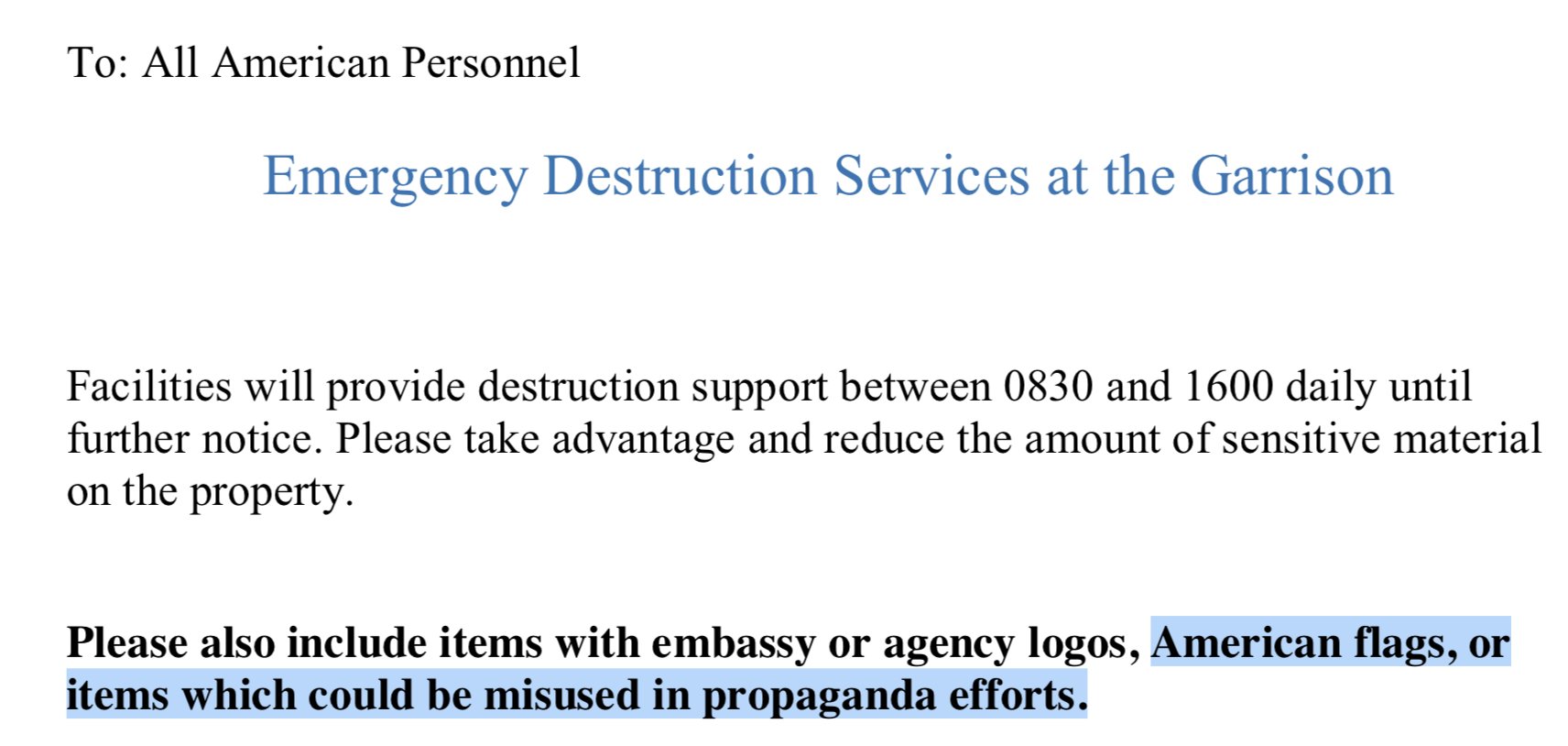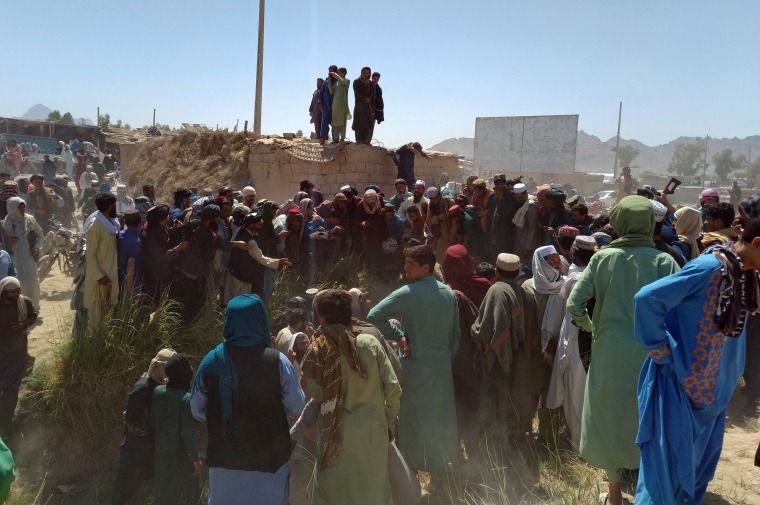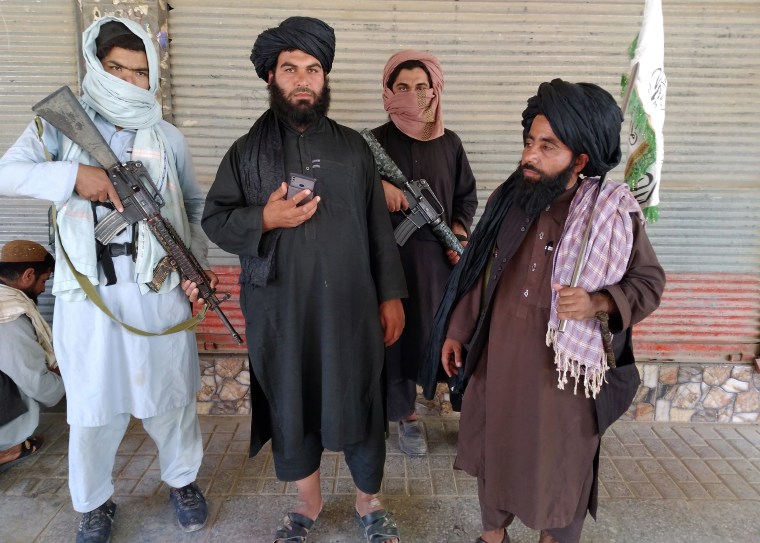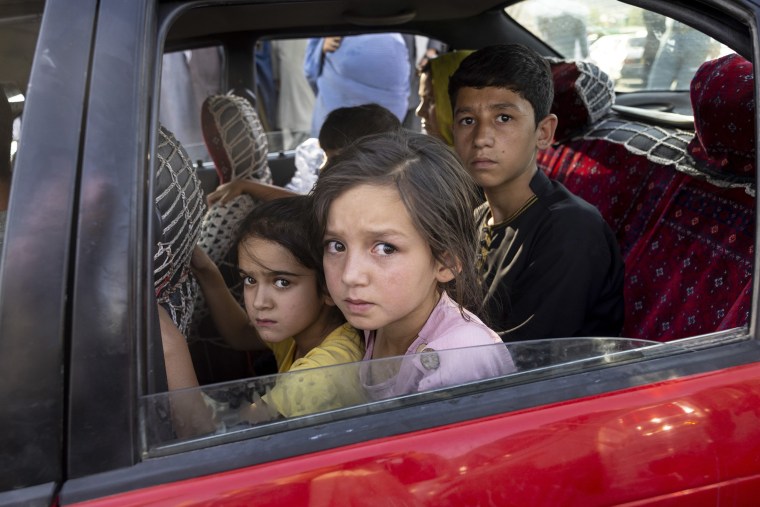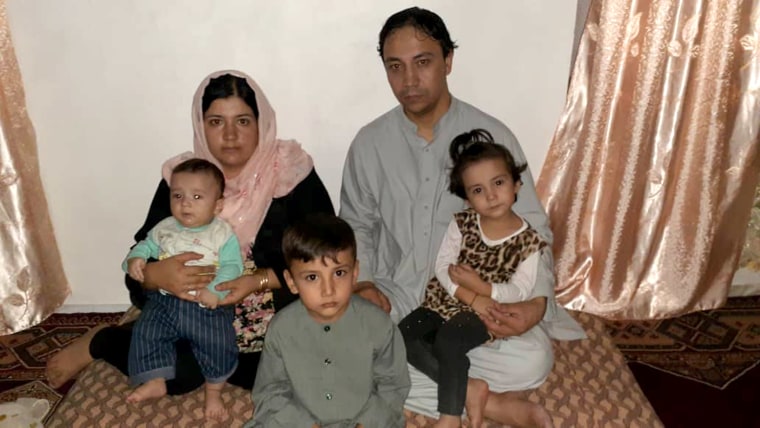Posted for fair use.....
The Wakhan Corridor is a fiercely contested imperial hangover.

foreignpolicy.com
ARGUMENT
China Is Protecting Its Thin Corridor to the Afghan Heartland
The Wakhan Corridor is a fiercely contested imperial hangover.
By
Sam Dunning
AUGUST 14, 2021, 6:00 AM
As American forces withdraw from Afghanistan after two decades of war, the country’s neighbors are rethinking their own relationship with the country. The Taliban’s recent
visit to Beijing has prompted plenty of speculation about China’s ambitions. But a forgotten strip of land may hold the key to the future relationship—and to the problems caused for both Beijing and Kabul of ethnicities and faiths that cross borders.
The Wakhan Corridor is a panhandle 217 miles long but less than 9 miles wide, ending in Afghanistan’s short border with China that measures just 47 miles across. It was created by Russo-British negotiations in 1895, resulting in a
commission that designated the valley as a buffer zone between the two empire’s territories—nominally administered by the emir in Kabul.
To the Corridor’s north lies the Tajikistani region of Gorno-Badakhshan, the site of a small but fierce civil war in the 1990s. To its south lies greater Kashmir, fiercely disputed between India, Pakistan, and China. At the far eastern end of the Corridor, meanwhile, across the snowy Wakhjir pass, is Xinjiang.
The terrain here is notoriously difficult—one reason the Taliban never took it over even when they ruled most of Afghanistan. The Corridor’s western reaches are famous for their dramatic
floodplains of the river Panj, which are framed on either side by bare, steep-sided mountains. Moving east, the river’s tributaries lead upward to the “Little” and “Big” Afghan Pamirs, pastures known for their harsh winters and impressive altitude. “There’s barely anywhere so remote or rugged,” said James Willcox, whose company has been running tours to the area for over 14 years. “It’s breathtaking.”
The Wakhan Corridor
Its cultural history is no less startling. By the river Panj in the west stands a disused stupa, pointing to a rich Buddhist history marked by the visit of travelers such as the Chinese monk Xuanzang. In the eighth century, a now-ruined fort above the village of Sarhad-e Broghil was the site of a key
battle between armies of the Tibetan and Tang Empires, wrestling for control of Silk Road traffic—for which the Wakhan was a key route—and its lucrative tariffs.
Elegant Persian-influenced
architecture shapes the houses of the valley’s mostly Ismaili Muslim inhabitants. Their bards still
sing of Alexander the Great, a hero throughout Central Asia, whose body was supposedly carried to the region so that it could be reunited in death with the conqueror’s true love, a semi-supernatural local maiden.
Marco Polo also makes an appearance on the roll-call of famous visitors to the region—the inhabitants’ “
peculiar language” caught his attention. Today, the people of the Wakhan are speakers of dialects belonging to a
diverse Eastern Iranic language group associated with the historical region of Badakhshan and the Pamiri ethnicity, itself a composite and evolving identity associated with peoples now spread across Tajikistan, Pakistan, Afghanistan, and China. The Pamiris are bound together by ties of tradition, kinship, and commerce. The trades in gemstones and
narcotics are the most lucrative, although these are now mostly inaccessible to the
Sarikolis, who live beyond the closely guarded Chinese border, which became dramatically less porous in the late 1950s.
Up in the Little and Big Pamirs, meanwhile, live a group of 1,000 or so long-suffering Kyrgyz. In the face of the 20th century’s upheavals, these pastoralists chose to limit their range to these hillsides year-round, instead of visiting them only seasonally. These are the remnants of a group once led by Rahman Kul Khan, a still-famous figure, explains anthropologist and photographer Tobias Marschall, who
lived among these Kyrgyz on and off between 2015 and 2019.
“In 1979, having secured the support of Turkey’s ambassador in Pakistan, Khan led half of this group on a dangerous migration westwards,” Marschall said. “The migrants settled by Lake Van, where a community still lives today, although some families later returned to the Pamirs. There had even been a proposal to resettle the entire group in Alaska.”
Fat-tailed sheep and goats, the livestock of Kyrgyz Pamir shepherds, dot the landscape in northeastern Afghanistan’s remote Wakhan Corridor in August 2015. TOBIAS MARSCHALL
It was an announcement about this isolated community that in April gave the first indications that change was coming to the Wakhan Corridor. “The hardships of the Pamir Kyrgyz are constantly on my mind,”
declared Kyrgyzstan’s President Sadyr Japarov as he conducted a visit to the few Afghan Kyrgyz families already “patriated” to his country. “The desire to resettle them to their historic homeland has been with me for a long time and now I wish to realize these intentions.”
In early July, the Taliban arrived in the west. They came in
four cars, a testimony to the fact that in spite of its scale, significance and diversity, this region is home to a mere 14,000 or so people. The locals did not challenge the arriving fighters, instead gathering to watch local leaders cautiously meet with the Taliban representatives.
The relationship between the people of the Corridor and the Taliban may not be easy. Some local families won credit with the former mujahideen for their part in the anti-Soviet resistance of decades past, points out Suzanne Levi-Sanchez, who
spent many years in the region and speaks its languages. Some of these mujahideen are now part of the local Taliban leadership.
The Taliban’s extreme fundamentalism, however, is largely alien to the Ismailis who make up perhaps 80 percent of the valley. This involves reverence for Shah Karim al-Husayni, an octogenarian billionaire who resides in Monaco and claims direct descent from the Prophet. The Aga Khan
organizations managed in his name have played a key role in development throughout the Wakhan over the past couple of decades, funding the construction of basic infrastructure, opium dependency reduction programmes, the growth of a tourism industry, and education.
The gains made through these projects are now threatened, with women and children impacted especially greatly, explained Levi-Sanchez. “Educational initiatives put in place over the last decade have been cut short, and women’s lives are already changing dramatically. Many Wakhi people are fearing for their way of life. It remains to be seen in the coming weeks and months how much will be forced upon them.”
Children’s backs are pinned with talismans for their health in the Pamirs, Wakhan district, in August 2015. TOBIAS MARSCHALL
They are not the only ones. As the Taliban made their way up the Corridor, the Kyrgyz of the Pamirs got wind of their coming. For reasons not entirely clear, a small group fled to Tajikistan in the company of an even smaller number of Wakhi herders, only for most to be forced to return shortly afterwards.
These inscrutable events cast some light on the worries of the many geopolitical actors with an interest in the Wakhan. The 200-odd Kyrgyz who fled, it has been suggested, suspect that they may have been returned to the Pamirs by Tajikistan’s authorities because of tensions between the country and Kyrgyzstan—though no official explanation was given. In May, at least
55 soldiers from these two states died in a bloody set of border clashes fuelled by local resource disputes.
Incidents such as this highlight the role of what John Heathershaw, a Eurasian expert at the University of Exeter, refers to as “trans-border co-ethnic solidarities.” These, Heathershaw believes, are growing more salient in Central Asia. Such solidarities across borders have typically been further complicated by a lack of national coherence. The region of Tajikistan that the Kyrgyz fled to, Gorno-Badakhshan, was a hotbed of rebellion during Tajikistan’s bloody civil war in the 1990s.
READ MORE
How Did Things Go So Bad So Fast in Afghanistan?
The State Department weighs evacuating the U.S. embassy in Kabul as more cities fall.
SITUATION REPORT |
ROBBIE GRAMER
More recently, in 2012 and 2014, its southwestern quarter was the site of clashes between the government and locals still resentful of Bishkek’s authority. The ties that span national borders are so strong in the Pamir region that many analysts and academics think in terms of “frontier zones” instead of clear border lines. The tragic events of 2012 were set off by a death in Ishkashim, a town which straddles Afghanistan and Tajikistan at the entrance of the Wakhan Corridor.
Cross-border solidarity unnerves China, which has built a vast, high-technology police state in order to control and oppress millions of Uyghurs and other minorities in Xinjiang, alongside the Sarikoli who once mingled freely with their Iranic-speaking cousins in the Wakhan and Gorno-Badakhshan. Solidifying control of the Wakhan—even if through the Taliban—is a better alternative.
China uses supposed Islamist extremism to justify the Xinjiang crackdown—but has little problem dealing with the Taliban. Such deals surprise fewer Afghans, let alone Wakhis. Beijing has been actively conducting security and diplomatic operations in and around the Wakhan Corridor for well over a decade. Those who know the territory insist that Chinese security personnel have been seen frequently there since the late 2000s, sometimes with Afghan troops in tow. Then, around 2012, Beijing began to provide scholarships for study in China to the sons of influential local families. Later still, the Wakhjir Valley at the end of the Corridor became increasingly securitized, mostly to prevent Uyghurs from fleeing Xinjiang.
Pamir Kyrgyz nomads live a pastoral existence in traditional yurts in the mountains of northeastern Afghanistan seen near Uch Jylga in August 2015. TOBIAS MARSCHALL
Beijing has strenuously denied reports that it has set up military sites in neighboring Gorno-Badakhshan, or that its army has conducted “
any military operation” in the Wakhan, while making noises about Uyghur militants who fight for the Taliban. There is some agreement that such fighters are present in Afghanistan. Crossing directly from Afghanistan to China, however, is likely very difficult given the level of surveillance the Eastern end of the Wakhan is subject to.
The net around Afghanistan cast by Chinese Communist Party (CCP) is becoming ever wider: A submission to the International Criminal Court claims that Tajikistan is one of a growing club of nations that is helping China
extradite Uyghurs, while a security cooperation
agreement signed in 2016 brought the two countries together along with Pakistan and Afghanistan. This quiet arrangement complements the other evolving fora between China and the Central Asian nations, as the CCP sought to boost the prestige and improve the coordination of the Belt and Road Initiative, for example, through a deal-oriented multinational
meeting at the symbolic “Silk Road” city of Xi’an held in May.
Alongside security, Beijing’s other interest in the region is economic. Feeling the constraints of its position in the South China Sea, Beijing has been investing in Pakistan’s ports and in the maintenance of the Karakoram Highway, which links Xinjiang to the Indian Ocean. The construction of this astonishing road claimed over a thousand lives in the 1960s and 1970s, while a number of dramatic interventions have had to be made in response to
damage since then. Involving barges, bridges, and the boring of massive tunnels, these repair operations are testimony to the incredibly tough topography of the greater region.
Nonetheless, the hard-won success of the Karakoram Highway and the closeness of China’s alliance with Pakistan may have fed some of the
enthusiasm about a road over the Wakhjir pass into the Wakhan. This project was begun by the Afghan government in 2019. A new section leading up to the pass is
under construction, but much of the route is no more than a gravel track cut into unstable ground. By stretching as far as the lower reaches of the Little Pamir
, this road has already brought benefits to the isolated Kyrgyz and the Wakhi who trade with them.
High mountain passes separate the lowlands of the Wakhan Corridor from the upper Pamir mountains as seen in September 2016. TOBIAS MARSCHALL
On the other hand, and in spite of
some reporting, there is no real indication that this
narrow, basic, and highly exposed road was funded by any Chinese entity or loan, let alone that it is a sign of the imminent development of the Wakhan into an economically significant thoroughfare under Chinese control. It seems unlikely Beijing would be sufficiently reassured by any Taliban guarantees to want to see a proper highway, with high levels of traffic, built along the Corridor.
What is clear, however, is that China has unparalleled potential to dominate the economies of Central Asia—some of which are already in a dependent position. For example, Tajikistan relies upon China for most of its
imports and
foreign investment, a state of affairs that helped Beijing secure a reasonably favorable result in the solution of an old border dispute with the latter: the
transfer of 1,000 square kilometers (386 square miles) of Tajik land.
Afghanistan, on the other hand, has been relatively resistant to Chinese investment. A flagship tender won by a Chinese consortium for the development of a large copper mine at Mes Aynak has been
stalling for
years. In fact, a significant portion of the work of Chinese companies in the country is as contractors for projects funded by other international investors. An intensive economic relationship between the two countries will not begin to develop until the situation in Afghanistan ceases to be so
destructive and the risks of investing reduce. Securing a subtle, speedy route into Afghanistan through the Wakhan may be critical for Chinese intelligence.
In Afghanistan, Beijing is still hedging its bets, content to gather intelligence—a spy ring was
busted in Kabul last December—and to cultivate a broad circle of friends and a wide range of interests. The Wakhan Corridor, a frontier with form when it comes to geopolitical intrigue, will remain a hotbed of imperial ambitions, regardless of what anyone living there wants.
Sam Dunning is a freelance researcher and journalist.




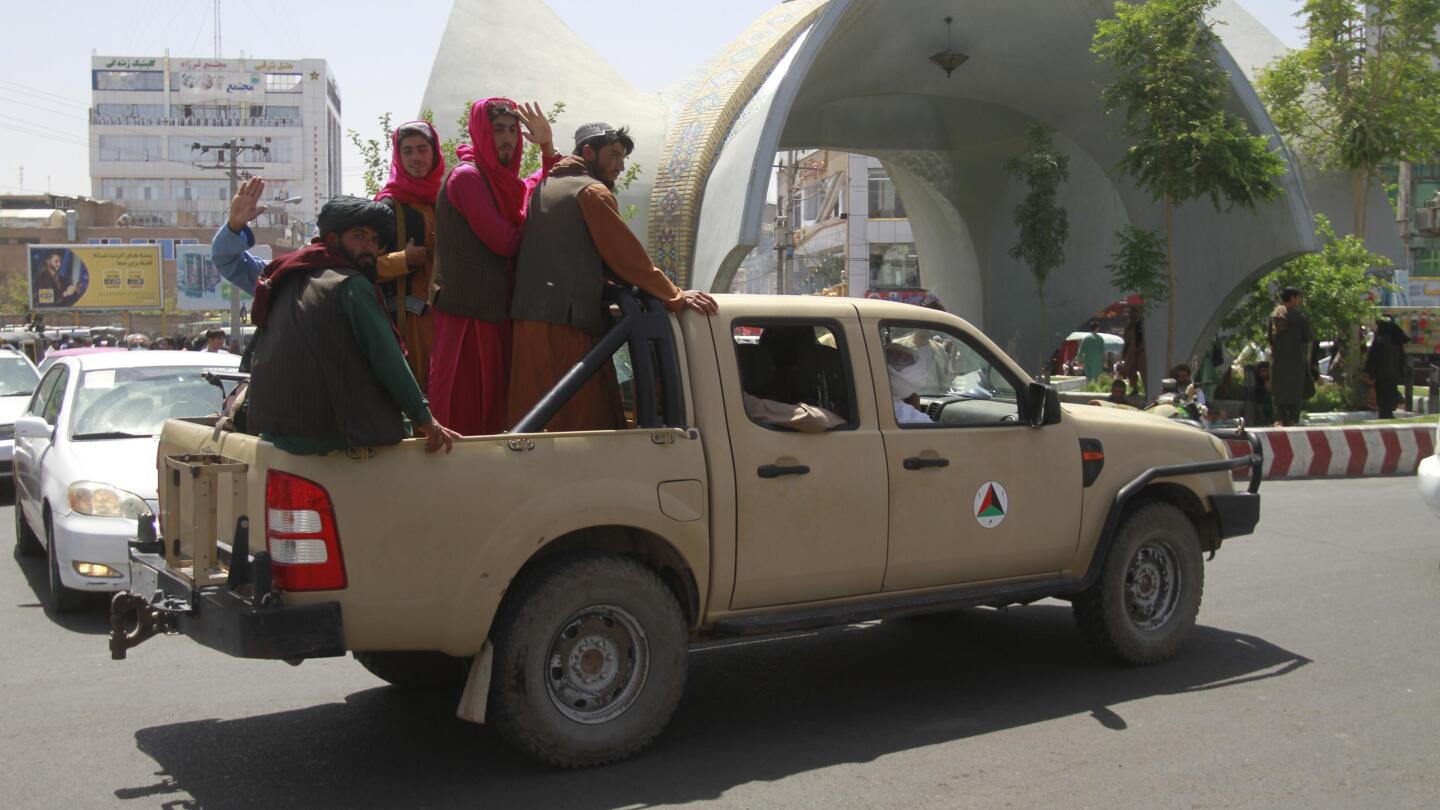



















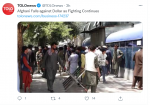

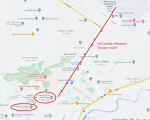


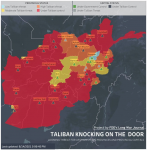
 Trump.
Trump.
